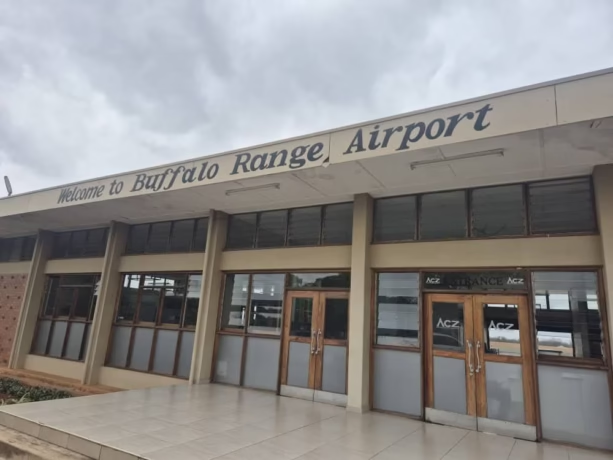
By Aldridge Dzvene
Delta Corporation Limited has entered the 2025 financial year with a notable show of resilience and market tenacity, registering strong volume growth and leveraging a relatively stable Zimbabwean macroeconomic landscape. The Group’s performance in the first quarter ended 30 June 2025 reveals a business that is not only adapting to a shifting operating environment but is also quietly repositioning itself for sustainable long-term competitiveness, despite enduring pressures from tax policy, regulatory inconsistencies, and informal market disruptions.
Zimbabwe’s broader economic landscape offered a rare moment of macroeconomic calm, buoyed by the stabilisation of the Zimbabwe Gold (ZiG) currency, record-breaking tobacco marketing inflows, and increased mineral export earnings. Diaspora remittances also lent strength to household incomes, with firm exchange rates in key remitting nations like South Africa and the United Kingdom. This undercurrent of consumer liquidity provided fertile ground for Delta’s brands to thrive, especially in the lager and sorghum beer segments.
However, the business still navigates a delicate balance. The once-rampant pricing distortions that plagued the formal sector have eased following revised exchange control measures, yet structural inefficiencies and uncertainties in the route-to-market regulations remain unresolved. The growing dominance of the informal sector, coupled with weak enforcement of tax and import controls, continues to eat into market share, particularly in sugar-taxed categories like sparkling beverages, which have been heavily undermined by smuggling and unregulated low-cost alternatives.
Lager beer stood out as the company’s strongest performer, posting a 19% growth in volumes over the prior year. This was supported by firm consumer demand, winter promotional activities, and brand presence across sports, music, and cultural platforms. Sorghum beer followed closely, growing 11%, supported by post-harvest liquidity, targeted price adjustments, and cultural affinity. The accolade awarded to Chibuku Super at the 63rd Monde Selection Quality Awards further entrenches the Group’s credentials in this heritage category.
While Delta’s South African subsidiary, United National Breweries, saw an 8% decline in volumes—largely due to labour-related disruptions, the company managed to restore operations and push Chibuku Super into formal retail. In Zambia, however, the business remains constrained by macroeconomic headwinds, prompting management to stay the course on ongoing recovery strategies.
The sparkling beverages segment continues to be Delta’s problem child. With only a modest 2% volume increase, this category is throttled by Zimbabwe’s high sugar tax, amounting to a staggering US$4.5 million in just one quarter. The tax regime has weakened the competitiveness of locally produced soft drinks, widening the door for cheaper imports and unregulated beverage alternatives. Strategic pivots toward low and zero-sugar variants, as well as more affordable pack sizes, are underway but will take time to offset current volume and margin losses.
On a brighter note, the non-alcoholic nutrition segment, led by the revitalised Shumba Maheu brand, tripled its volumes in the quarter, while African Distillers Limited (Afdis) posted a stellar 40% volume growth. Afdis’ performance was driven by its Ready-to-Drink (RTD) beverages, new pack innovations like the 660ml Hunters, and strong demand in the spirits and affordable wines segments. The formalisation of trade and effective distribution are contributing to a more level playing field in this sector.
Schweppes Holdings Africa, now a consolidated subsidiary after Delta’s shareholding increased to 69%, registered a subdued 1% growth, primarily buoyed by improved availability of Minute Maid juices and water. Although the sugar tax on cordials was adjusted downward in early 2025, further alignment with regional benchmarks is necessary to prevent ongoing leakage from imported and unregulated sweetened products.
Nampak Zimbabwe, Delta’s packaging partner, remains under operational pressure due to frequent power cuts and rising competition. The business is trading under a cautionary as its international majority shareholding is under negotiation for transfer to TSL Limited, an event that may reshape Zimbabwe’s packaging sector dynamics.
Financially, Delta posted a robust 25% revenue growth, driven largely by strong performance in the alcoholic beverages segment and the inclusion of Schweppes in Group accounts. Over 85% of domestic sales were conducted in foreign currency, highlighting continued market confidence in Delta’s brands and its relevance in an increasingly dollarised consumer economy. Nonetheless, profitability is being eroded by the sugar tax burden and regulatory frictions. A total of US$6.7 million in sugar tax was absorbed across the Group in Q1 alone, an unsustainable drag that must be addressed through policy dialogue and strategic pricing.
One major cloud hangs over the otherwise encouraging update: the Group’s protracted tax dispute with the Zimbabwe Revenue Authority (ZIMRA), which could have material consequences if not resolved rationally. ZIMRA has assessed Delta for US$73 million in retrospective taxes, penalties, and interest, largely premised on historical interpretations of foreign currency obligations. Despite paying US$11.6 million under the “pay now, argue later” framework, Delta maintains that much of the liability had been met in legal tender during hyperinflationary periods. The matter is being contested through both legal and fiscal channels, with the Board rightly cautious about predicting the outcome.
Looking ahead, Delta’s outlook remains cautiously optimistic. Stable exchange rates, improved agricultural output, and continued consumer liquidity provide a promising macro-backdrop. Management is pushing to accelerate capacity investments in response to demand surges.




